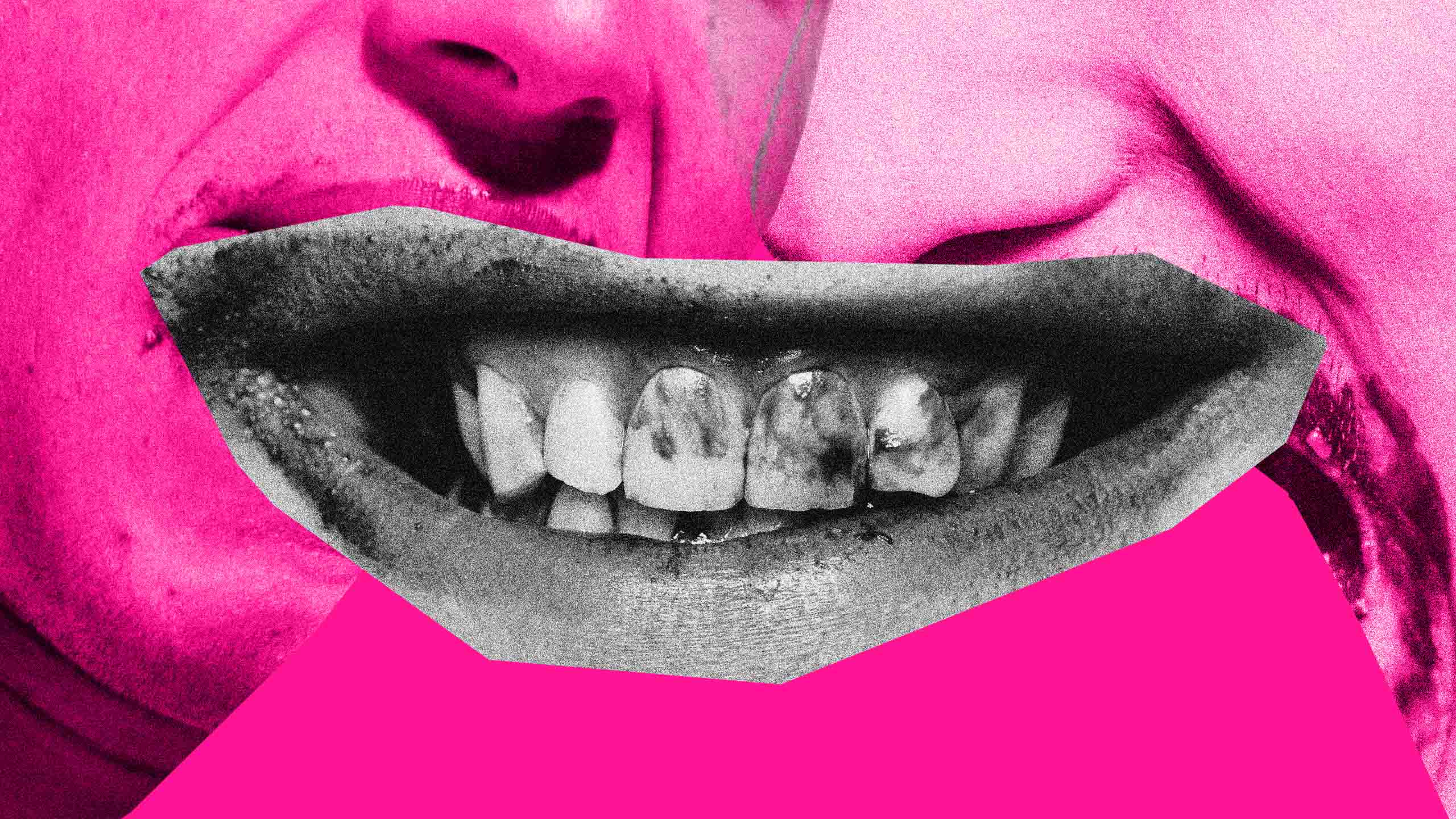If you’re queer and sexually active, you might have that story.
The story about a hookup gone awry that you tell your friends—red-faced—over brunch the next morning à la the Sex and the City ladies. Spend enough time in these dating streets and you may even have a few such tales.
The story sweeping my social circle of late is one that happened to me, and that we affectionately refer to as “the Madonna incident.”
To avoid slipping too far into erotica, I’ll stick to the top-line points: after a few passionate rounds of switching positions, my partner politely told me to “clean up” in the bathroom. After doing so, I was confused—unable to find any unwanted residue. I thought he may have mis-seen/smelt something. Until, of course, I looked in the mirror and right in the middle of my two front teeth—creating an illusion of space, akin to Madonna’s iconic tooth gap—was a small piece of shit.
Though disgusted at the time, I (and many others) have to laugh now. It’s a silly, icky anecdote—and one that’s shockingly relatable. In recounting my experience as the Material Girl, others opened up about their poop-eating episodes.
I’m not talking about intentional scat play or poop fetishists (that would warrant its own article). Rather, it’s fair to say that with whether it’s ass-to-mouth play or fisting/fingering and sex toys flying around, it’s not crazy to suggest that droppings might end up in or around your mouth. After all, what is rimming if not going directly from the tap?
If you can get past the initial ick factor, questions emerge: What are the risks to you or your partner if you do digest a little dung? And what can you possibly say in the heat of the moment when it does happen?
To answer the first question, I spoke with Dr. Troy Grennan, an infectious diseases physician and researcher at the BC Centre for Disease Control who leads their HIV/STI program.
“It’s weird to say it this way, but you can think of it as ‘dose-dependent,’” Grennan says, using “dose” as a more sanitized term than I could think of for poop. “The higher the ‘dose,’ the higher the number of bacteria you get and the higher chance you have of getting infected with something. In most cases you’re probably going to be fine.”
When it comes to which bacteria live in or around the anus, all the usual sexually transmitted infections apply: HPV, gonorrhea, chlamydia, syphilis, etc. But when fecal matter is present, that risk could extend to things like Hepatitis A or one of a dozen other bacteria or parasites present in stool, including giardia and E. coli.
Unlike STIs, the symptoms for these infections more commonly include fevers, diarrhea, cramping and vomiting. Grennan suggests talking to a healthcare provider if you experience these symptoms within hours or days after your sexual encounter.
But as unpleasant as that all sounds, Grennan makes it clear that the risks of transmission for these infections aren’t necessarily high—specifically because the person whose fecal matter you’re consuming usually needs to also be infected with the bacteria. Hepatitis A, for instance, is less common in North America thanks to our water filtration processes, food safety measures and high uptake of the Hep A vaccine—so it might be more likely that you’ll catch it on a trip abroad than while having sex.
But just because a brush with bowel movements doesn’t always result in an infection, that doesn’t mean queer and trans people should completely let their guard down. Take shigella. The intestinal infection, also spread through the fecal-oral route, is causing concern among health circles due to a multidrug-resistant variant found in pockets of queer social circles.
So when it comes to mitigating risk for shigella and other fecal bacterias, Grennan says douching and cleaning your ass is helpful, as is washing hands and sex toys not only before and after sex, but also during (even if you think it might hurt the vibe).
These precautions aren’t meant to obliterate every speck of fecal matter, Terminator-style. “Even despite vigorous cleaning and hygiene, there is never zero risk of getting some sort of infection because this is an area where there’s lots of transit and bacteria,” says Grennan. Over-douching, he also warns, can damage your intestinal lining and actually make you even more prone to bacterial growth.
“The gastrointestinal system is a dynamic system. There’s constant movement, so if you douched four hours ago, things can change.”
Of course, mitigating health risk is only one part of the equation. There is also the toll that some run-off surprise can have on the dynamic between partners.
“A lot of folks think that when an accident happens, then the whole mood is killed,” says Keanu Jackson, a therapist and educator based in Brooklyn, New York, who helps queer people find bodily autonomy and agency in sex and relationships. When accidents do happen, Jackson says that the very first step should be monitoring your own reaction, regardless of what side of the equation you’re on.
“Understand that this is an experience that is probably embarrassing, so it takes a lot of self-coaching to go through the process and see what your partner’s immediate care needs are.”
He also suggests working together to get back into a space of intimacy. Playing some music and lighting a candle while showering can be immensely erotic when paired with massages and gentle kissing. “The cleanup process doesn’t have to feel like it’s such a separate piece of the larger sexual puzzle.”
And if you find you like the presence of nature’s fudge and aren’t sure how to broach that subject with a partner, don’t surprise them with it in bed. Rather, approach the conversation prepared to articulate not just what you need, but why. “What is it about this particular kink that is exciting for you? Do some of that reflection work so that when your partner inevitably has some questions, you can help bring them into your own curiosity,” Jackson suggests.
Be it with your health or with your hookup, don’t panic.
“Shit happens. Just because it happens doesn’t have to be the end of a sexual dynamic.”


 Why you can trust Xtra
Why you can trust Xtra